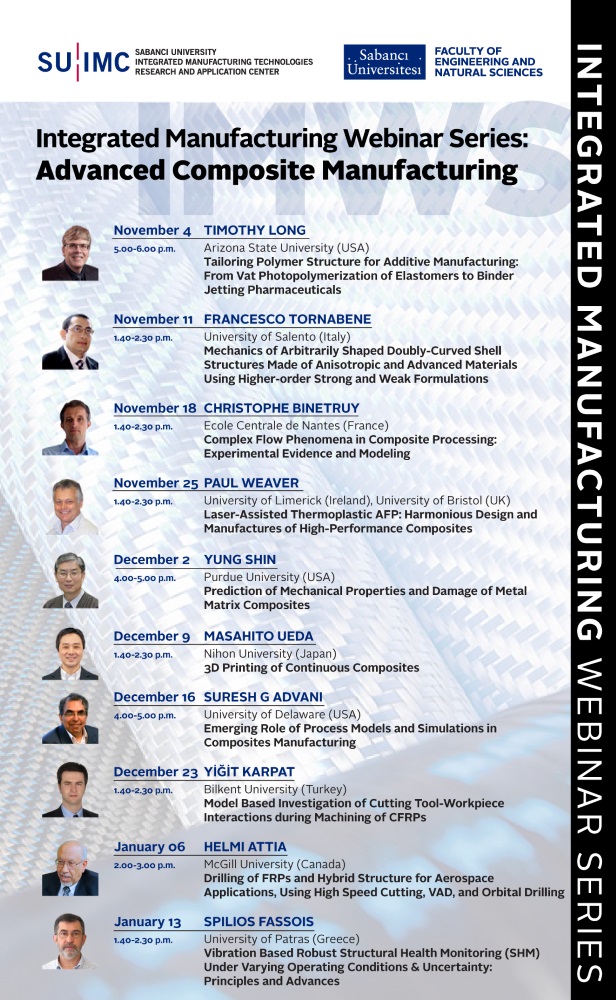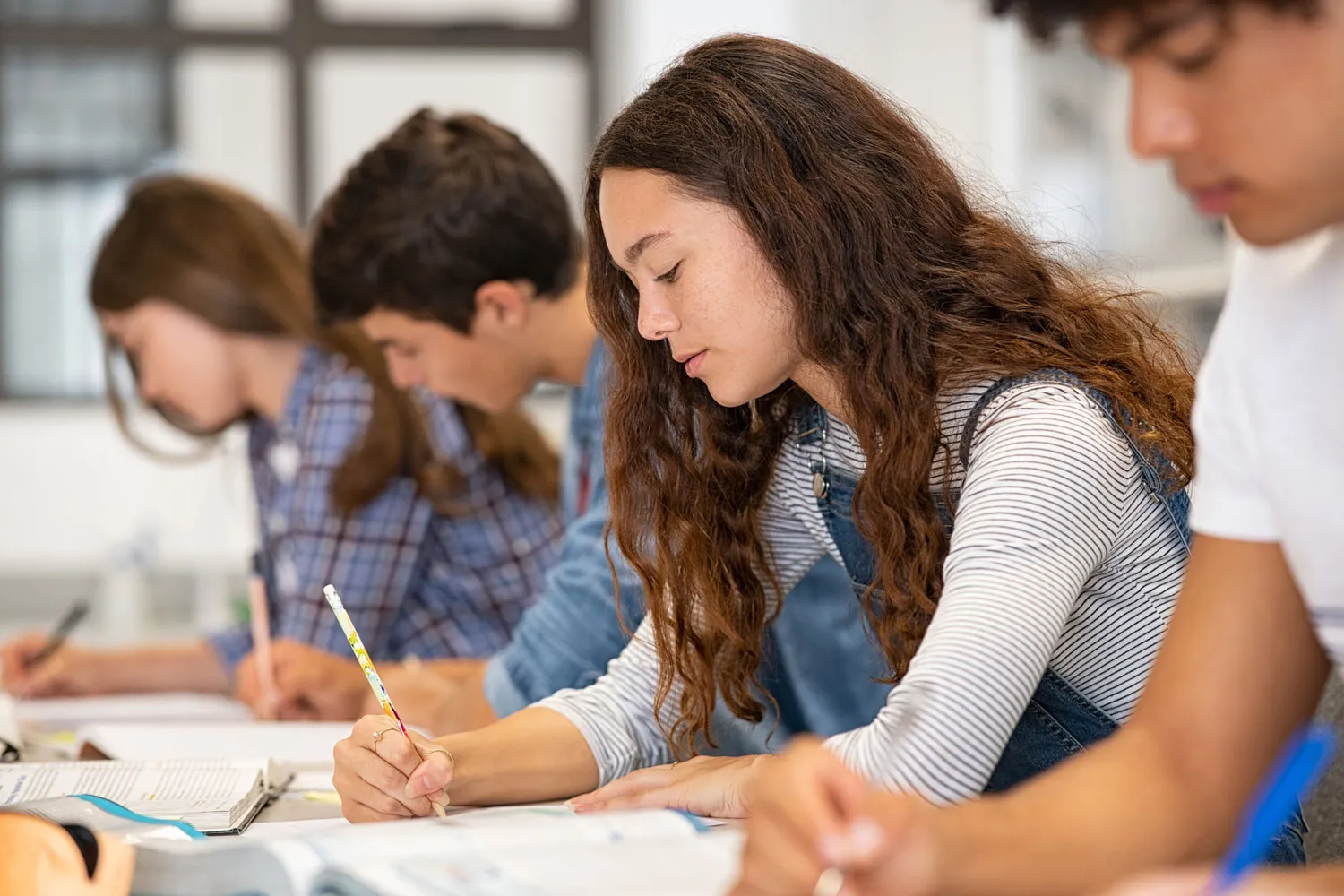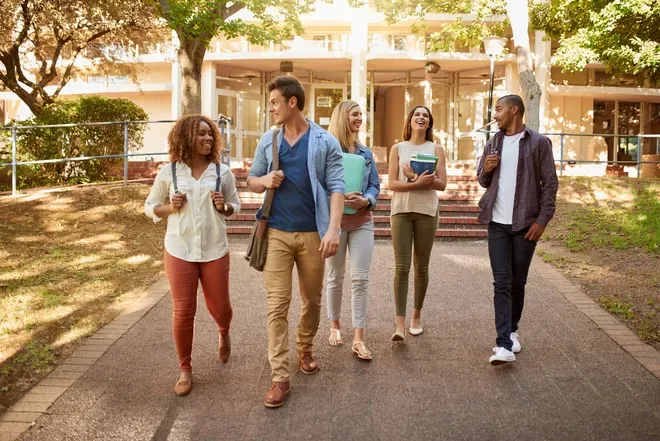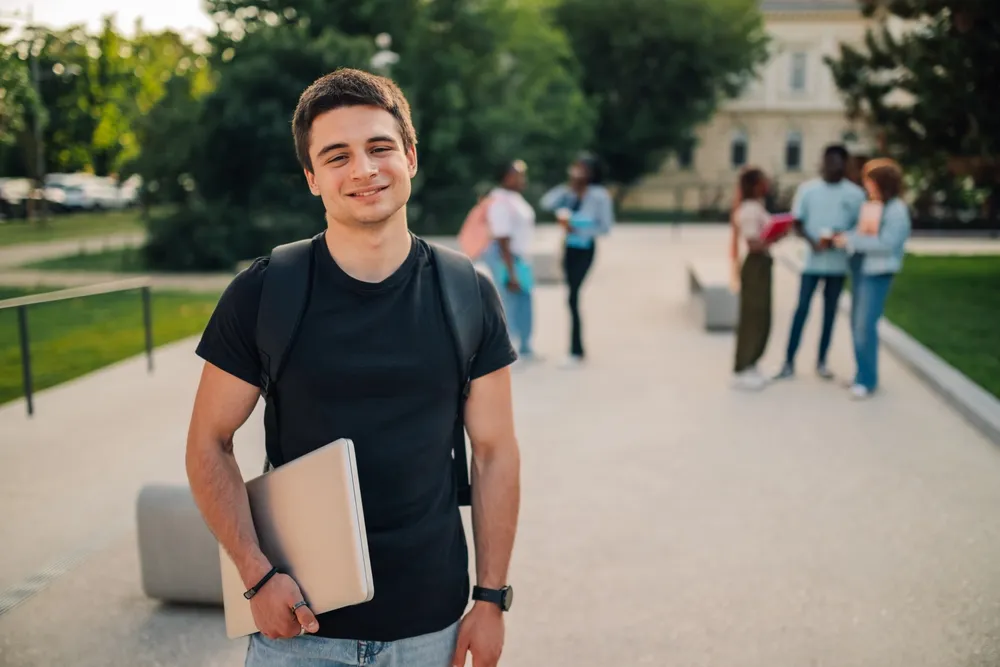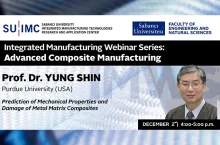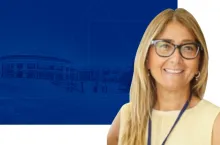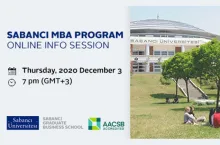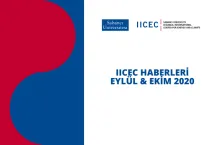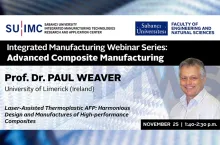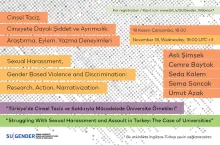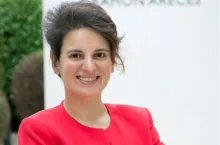The Internship and Career Office supported 638 Sabancı University students in completing their compulsory internship this summer. Among them, 439 students completed their internships online.
The Online Internship Program helped Sabancı University students acclimatize successfully to the new working environment.
We spoke with Alumni Relations and Career Development Manager Şule Yalçın on the innovative “Online Internship Program” as an alternative during the pandemic, and its results. The interview with Yalçın is below.

Şule Yalçın / Alumni Relations and Career Development Manager
The interview with Yalçın is below.
Sabancı University made a quick transition to online (remote) learning during the pandemic, and the 2019-2020 spring and summer semesters were a success. You as the Internship and Career Office continued to work through this process. What was the experience like?
Ş.Y.: In the beginning of the pandemic, we as a team planned what we could do without interrupting our existing internship and career services while also taking the dynamics of the new circumstances in consideration.
Our key concern was that our 638 students, who were required to complete an internship, including 78 prospective graduates, complete their internships without major issues.
When the pandemic hit, some companies cancelled their internship programs while others started to postpone theirs. This became a major issue for students who needed to apply to summer internships.
As the way of doing business evolved, we revised our own processes and decided to add the "Online Internship Program" to the successful internship program already implemented by the Internship Office. We had a series of meetings with Faculties as well as Student Resources to determine collaboration opportunities and design the workflow processes of the new program in the most effective way. Finally, we designed the "Online Internship Program" that would enable our students to become involved in professional life without going to physical workplace.
The “Online Internship Program” was new to everyone, and was designed and launched in a pinch. How did you promote it to students and companies?
Ş.Y.: As you say, online internship was not a widespread practice in Turkey in the early days of the pandemic. That is why our priority was to introduce the details, workings and benefits of the Online Internship Program to companies quickly, and to share our expectations with them.
We held online introduction meetings attended by faculty members. We explained the benefits of Online Internship to the student and the institution to company representatives. In early May, when Online Internship was not yet a thing, we introduced the Sabancı University Online Internship Program to 150 prospective hosts and invited them to take part.
We also reached out to alumni living in Turkey and around the world to call on them to create internship opportunities within their organizations.
Many companies decided to take our offer after our information sessions. Among the 638 students who had internship as a requirement, 439 completed their requirement within the Online Internship Program. Looking back, we can say that 68% of students registered to the compulsory internship course have found online internship placement within companies.
As the Career Development and Internship Office, we stood by our students, directed them to physical and online internship postings, helped them prepare for online interviews, prepare their resumes, as well supporting them other job/internship search processes. We held 9 Online Internship / Compulsory Internship information sessions in the Spring semester alone, and 510 students attended.
You said you reached out to our alumni in this process. Can you share some details?
Ş.Y.: It was not surprising that our alumni were our greatest supporters and stakeholders in this process. We reached out to alumni who were working in different fields abroad, and asked for their help in creating internship opportunities. As a result, 50 alumni provided internships to 150 students, building bridges between generations in the Sabancı community. Although the pandemic prevented physical internships abroad, 62 students found online internship positions with companies abroad, gaining international work experience while sitting in front of their computers at home.
For example, we contacted an alumnus who had their own lab in the University of Manchester, and matched them with a Computer Science and Engineering student who was working on Robotics Technology.
How about the evaluation of the Online Internship Program?
Ş.Y.: The Sabancı University Internship Office sends "Internship Evaluation" surveys to all students who complete compulsory internships, and their host institutions. This is standard practice every year. We did likewise for this year. We were anxious about this year's responses. We knew what to expect about online internship in theory, but seeing actual successful results motivated us.
We want to hear about those results too. Can you share them?
Ş.Y.: We analyzed the results of the “Online Internship Program” last week.
276 companies and 412 students who completed online internships responded to the survey.
Among students, 86% were satisfied with online internship in general, and 97% of the host institutions were satisfied with our students. We were delighted and encouraged that we achieved such high results in a program that was a first for all of us.
Some numbers by program are given below.

Looking at the table of programs and compulsory internships above, we can reach a few conclusions.
- In the two programs with low compulsory internship requirements, 100% of internships were completed online.
- In the Computer Science and Engineering program, where compulsory internship requirements are higher, 90% of internships were online.
- Six programs have between 60 to 70% in online internships.
- In the rest of the programs, the ratio of online internships varies between 47% to 56%.
In general, online internship has a large share in overall internships regardless of program. (68%)
Which sectors and fields offered the most opportunities to our students?
Ş.Y.: I will admit that I was expecting sectors to be quite limited for the Online Internship Program when we first began. However, I saw that opportunities could be created in any sector depending on the positions companies need filled.
Our students did online internships in 25 sectors and 23 different fields. The key sectors as seen in the table below were software technologies, information technology, education, consultancy and internet/e-commerce/social media.

Internship fields included software engineering, business development, finance, digital communication, consultancy, graphic design, risk management, international commerce, human resources, and market research.
Some host institutions were Akbank, Farplas, Altınay Havacılık, Brisa, Arçelik, Bayer, Maersk, Yapı Kredi, Denizbank, EnerjiSA, Dışişleri Bakanlığı AB Başkanlığı, Procter&Gable, Sanlab Simulation, Coyotiv UG, Manchester University, Oxford University, Novartis and Tübitak Bilgem.
What advantages did the Online Internship Program have for our students?
Ş.Y.: We had an intense series of one-on-one interviews with our students and host companies, which revealed that the online internship program had great benefits to students in terms of flexibility, time spent in commute and comfort, while allowing them to work on projects free of time and creativity constraints. The time they spent away from the lab helped them focus on the marketing aspect of their jobs, see into different dimensions, and develop their planning and task completion competencies.
On the other hand, the lack of an office environment where employers and employees can collaborate, difficulty in maintaining motivation, and fewer chances to build a professional network were the leading issues we identified.
Students who wanted hands-on experience in manufacturing, engineering or research and development were inclined towards conventional, or on-site, internships.
Online Internship Program testimonials from students and companies are below.
Messages from Students
Bahar Can – Industrial Engineering
I am highly satisfied with this experience. Working online gives me more time to focus on the task at hand. Coupled with the flexibility the company provides, this method of working boosts my efficiency. Working on projects without constraints on time or creativity had great benefits to me, which I can see even now.
Arda Tuğal – Computer Science and Engineering
The best part of online internship is that you get to choose your hours. Instead of starting early and ending at 5 or 6pm, you can start later and work at night. You can take a break when you want, so stress is lower.
Gamze Böncü - Economics
The greatest advantage of the online system is that it allows us to achieve a much better work-life balance. Although the internship is intense, there is no travel time and I can have some time for myself. Normally I would have commuted to the workplace for 2 hours every day, but now I can use that time to study for my summer school course.
Zeynep Durmaz - Materials Science and Nano Engineering
I had always wanted to do my compulsory internship in the university, and thanks to this program, I was able to join an academic research project environment remotely. Besides, I learned a computer software, which helped me understand which stage simulation and modeling are used in materials science, and how a material can readily answer many questions even before the manufacturing stage. If my project were not online, there would not have been anything for me to understand. The greatest contribution of this internship was that I discovered that I want to work on material development in the field of energy thanks to the seminars I attended and the topic of my project.
Messages from Companies
Dr. Ahu Gumrah Dumanli - Parry-BP-ICAM Kathleen Lonsdale Research Fellow - BioFUM group leader University of Manchester | Materials Department
Mert worked on an interesting interdisciplinary project where he applied his knowledge and skills in computer science and engineering to a materials science project on color identification using smartphones. He learned the Java and reactnet programming languages to develop an application for using telephone cameras as detectors. The application is 80% complete and Mert will be a part of our group in the further development of this new tool.
Mert made an interesting choice while working in our group. We are an experimental materials science group and we need to develop a user interface within a specific application template. Mert is a highly talented student who displayed excellent performance in developing applications on javascript, learning languages and extension packs. We were in contact with the Computer Science department in Manchester, and this department's project will evolve into a graduate project involving Mert in the future. I was delighted by Mert's attitude and his enthusiasm to take part in such a challenging project.
Okan Ataman - R&D Manager / KordSA Teknik Tekstil A.Ş
Doğukan worked on one of the most complicated issues of the Kordsa Composite business unit. He analyzed the quantities and costs of all production and shipments we made from 2019 to the present. The analysis showed how much of each shipment was product and empty space. He also recommended a type of box to be used in -18 C transport to help overcome this issue.
Hakan Şener – Product Manager / Tarentum Yazılım ve Danışmanlık A.Ş.
The application process was straightforward. The number and quality of applications received from the Internship Office was above my expectations, which shows that you managed this process well. Kaya's comments are also in support of this. "We have a career page where a large number of ads were shared by the university, and that is how I applied to Tarentum. It was great that they picked the most useful ads from the best companies at a time when finding internships was difficult due to the pandemic."
Thank you for this great interview. Is there anything you would like to add?
Ş.Y.: As the "new normal" gains currency, students, companies and we had the great fortune to experience this new normal.
Conventional internships enable students to learn by doing, which is always important to us. On the other hand, we also believe it is critical that we seize the opportunity yielded by changing ways of doing business around the world to offer a complete range of services to our students. We always see that experiencing different opportunities helps students acquire new competencies.

